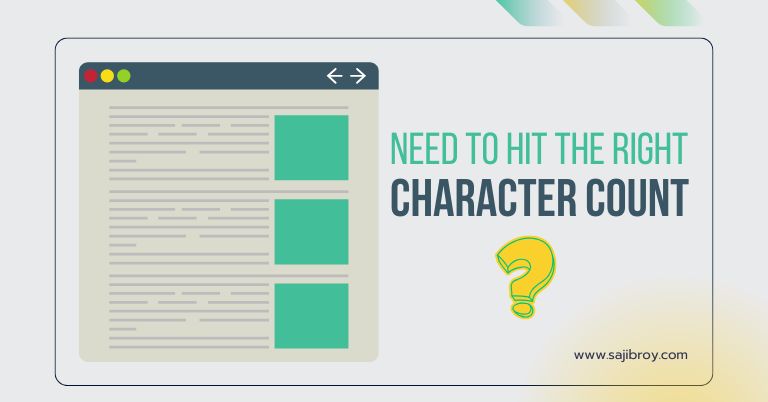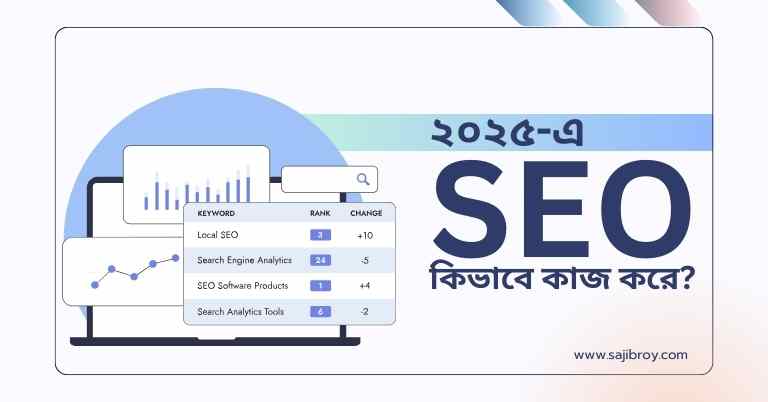Search Engine Optimization (SEO) is the practice of improving the ranking of a website on search engines. The higher the ranking, the more likely people are to find the website. However, SEO is not easy. Industries need SEO the most and different businesses need different SEO strategies; otherwise, it will not work properly. Let’s explore what do you need to balance when doing SEO for different businesses!
There are a lot of factors to consider when trying to improve a website’s ranking. One of the most important things to balance when doing SEO is on-page and off-page optimization.
On-page optimization refers to all the things that can be done on a website itself to improve its ranking. This includes things like choosing the right keywords, having well-written content, and having a good site structure. Off-page optimization refers to all the things that can be done outside of a website to improve its ranking. This includes things like building links and creating social media buzz.
What Do You Need to Balance When Doing SEO?
There are a number of factors to consider when working on your SEO. Here are some of the key things to keep in mind:
- Keywords: Make sure you target the right keywords for your website. Choose keywords that are relevant to your business and that have a good search volume.
- Content: Write quality content that is informative and keyword-rich. This will help your website rank higher in search results.
- On-page optimization: Optimize your website for better search engine visibility. This includes things like title tags, meta descriptions, and header tags.
- Off-page optimization: Promote your website through link building and social media engagement. This will help improve your website’s authority and Page Rank.
- Analytics: Track your progress with analytics tools such as Google Analytics or HubSpot’s Marketing Grader tool.
How Do You Balance Your SEO Strategy?
There is no one answer to this question because it depends on the goals of your website and the resources you have available.
SEO is an umbrella term for the digital marketing industry. When it comes to SEO, there are a lot of different factors that you need to take into account in order to ensure that your website is ranking well in the search engines. However, one of the most important things that you need to focus on is balancing your SEO efforts. This means that you need to be sure that you are not putting all of your eggs in one basket, and instead spreading your SEO resources out across multiple areas.
Here are some tips on how to balance your SEO:
- First, consider what your users are looking for when they come to your site. What kind of information do they need? How can you make it easy for them to find what they need? Keep these questions in mind as you develop your overall website strategy and individual SEO tactics.
- Second, take a look at your competition. What are they doing well that you can learn from? Are there any gaps in their strategies that you can exploit? Understanding what others in your industry are doing can help you develop an effective SEO strategy of your own.
- Third, think about how different types of searches will lead users to your site. For example, if someone is searching for a specific product, they may use different keywords than someone who is just looking for information about a topic. Make sure you target both types of searches with your content.
- Fourth, don’t forget about off-page SEO factors such as link building and social media engagement. These activities can help promote your website and improve its search engine ranking.
- Fifth, stay up to date on the latest trends and changes in the world of search engine optimization. Google is constantly tweaking its algorithms, so what worked last year might not work this year.
- Finally, keep track of your results so you can adjust your strategy over time. Regularly check your website’s traffic and search engine rankings to see how well your efforts are paying off.
With these tips in mind, you can develop an effective SEO strategy that will help bring more users to your site. By diversifying your efforts and monitoring your progress, you can make the most out of your SEO Quizlet and see better results for your website over time!

What are the Five Components of SEO?
SEO is the process of optimizing a website for Google search with the goal of earning higher web traffic levels and improving the visibility of the site.
The five components of SEO are:
- Keyword Research: Finding and targeting keyword phrases that relate to your business, product, or service.
- Quality Content: High-quality, relevant content is essential for good SEO. Make sure your website has informative and keyword-rich content that will engage and convert visitors into customers or leads.
- On-Site Optimization: Make sure your website’s title tags, meta descriptions, header tags, images, and other elements are optimized for Google search.
- Link Building: Quality links from other websites can help improve your website’s ranking in search results. Focus on building relationships with other websites in your industry to get quality links.
- Social Media Marketing: Promoting your website and content on social media platforms such as Facebook, Twitter, and LinkedIn.
Which of These is Important KPIs to Consider for SEO?
There are a number of important KPIs to consider for SEO. Here are some key ones:
- Search engine ranking: This is perhaps the most obvious KPI and one that is closely watched by businesses. Where your website ranks on search engines can have a big impact on traffic levels, so it’s important to track this metric closely.
- Click-through rate: This measures the percentage of people who click on your listing when it appears in search results. A high CTR is an indication that your listing is relevant and appealing to searchers, and can help you move up the rankings.
- Traffic levels: Another key metric to track is overall traffic levels to your website. An increase in organic search traffic can be a good indicator that your SEO efforts are paying off.
- Bounce rate: This measures the percentage of people who leave your website after viewing just one page. A high bounce rate could indicate that your website isn’t relevant to what people are searching for, or that it’s not user-friendly. Keeping an eye on this KPI can help you identify areas for improvement.
- Conversion rate: If you’re aiming to generate leads or sales from your website, then tracking conversion rates is essential.
This KPI will tell you how many people take the desired action after landing on your site (such as filling out a form or making a purchase).
| Note |
|---|
| True Or False? the Same Seo Strategy Will Yield the Same Results for All Websites. The answer to this question is a resounding NO! Just because one SEO strategy works for one website does not mean it will work for all websites. In fact, each website is unique and therefore requires its own specific SEO strategy in order to be successful. There are many factors that go into creating an effective SEO strategy, including the type of website, the products or services offered, the target audience, and even the competition. A good SEO Engineer will take all of these factors into consideration when developing a customized SEO plan for each individual client. Why Need SEO Specialist for Your Business Growth? |
Why is Having Duplicate Content an Issue for SEO?
When it comes to SEO, duplicate content is a major issue. search engines are designed to index unique content, so when they come across duplicates, they can get confused about which one is the original. This can lead to lower rankings for your pages, or even getting de-indexed entirely.
There are a few ways that duplicate content can happen on your site. The most common is if you have multiple pages with very similar or identical content. This could be because you have different pages for mobile and desktop versions of your site, or because you have the same product listed in different categories.
Whatever the reason, it’s important to make sure that each page has unique and relevant content. Another way that duplicate content can occur is if someone else steals your content and republishes it on their own site. This is called scraping, and it’s a serious problem since it not only dilutes your SEO efforts but also creates copyright issues.
If you find that someone has scraped your content, contact them immediately and ask them to take it down. If they don’t comply, you may need to take further action such as filing a DMCA complaint. Lastly, duplicate content can also happen if you inadvertently publish the same article in multiple places (e.g., guest blogging).
How Do You Build Discovery And Relevance for Search Engines?
Search engines are designed to help people find the information they need, whether it’s a specific answer to a question or a general overview of a topic. But how do search engines actually work? How do they know what’s on the internet and how to rank results so that the most relevant information is at the top?
The answer lies in two main concepts: discovery and relevance. Discovery is the process by which search engines find new websites and web pages. Relevance is how well a given webpage meets the needs of the person who is searching.
Together, these two concepts ensure that search engine users can always find the most useful and up-to-date information available. There are three primary methods of discovery: crawling, indexing, and ranking. Crawling is when search engine bots visit websites and follow links to other pages on the internet.
As they crawl, they take note of any new content they find. This helps them keep their records up-to-date so that when someone searches for something, they can be sure to get accurate results. Indexing is when search engines save information about individual webpages in large databases called indexes.
When someone enters a query into a search engine, it will use its index to look for matching pages and then return those results to the user. In order for pages to be indexed, though, they first need to be discovered through crawling. The ranking is how search engines determine which results should be shown first in response to a query.
To do this, they use algorithms – sets of rules or guidelines – that take into account various factors such as relevancy, popularity, authority, and freshness (how recently updated the content is). By taking all of these factors into account, search engines can provide users with highly relevant results that are also likely to be useful and up-to-date.
What is Keyword Optimization
Keyword optimization is the process of choosing and using keywords in your content so that your website or blog ranks higher in search engine results pages (SERPs). When it comes to SEO, keyword optimization is one of the most important things you can do. That’s because when people search for something online, they use keywords.
And if you want your website or blog to show up in those search results, you need to use those same keywords on your site.
There are a few different ways to optimize your keywords, including:
- Use relevant keywords throughout your content, including in the title, headings, and body text.
- Create keyword-rich titles and descriptions for your web pages and blog posts.
- Do research to find the best keywords for your niche or industry.
- Utilizing tools like Google Keyword Planner and SEMrush to help with keyword research and analysis.
Keyword Optimization Examples
As a business owner, you know that keywords are essential for helping potential customers find your website. But what are the best keywords to use? And how can you make sure your website is optimized for them?
There are a few things to consider when choosing keywords.
First, think about what potential customers might search for when looking for a business like yours. Make a list of these keyword phrases and start incorporating them into your website content.
Another important consideration is competition. If you’re in a highly competitive industry, it may be difficult to rank for popular keywords. In this case, you’ll need to get creative and choose less common keywords that will still attract attention from your target audience.
Once you’ve selected your keywords, it’s time to start optimizing your website for them. Here are a few tips:
- Use keyword-rich titles and descriptions on each page of your site.
- Incorporate keywords into your page content in a natural way. Don’t stuff them in!
- Create separate pages on your site for each of your main keyword phrases. This will help search engines understand what each page is about and index them accordingly.
- Use alt tags to describe images on your site using relevant keyword phrases. This will help search engines index those images and improve your overall ranking.
- Build links to your site using keyword phrases as the anchor text.
Conclusion
When it comes to SEO, there are a few things you need to keep in mind in order to achieve success. First and foremost, you need to make sure that your content is relevant and keyword-rich. Secondly, you need to ensure that your website is easy to navigate and user-friendly. Lastly, you need to make sure that your site is properly linked internally and externally. By following these simple tips, you should be well on your way to achieving high search engine rankings.
Keep Learning With Sajib Roy













I have had a lot of experience with SEO and I can say that it is not easy. It takes a lot of time and effort to get your website to rank well in search engines. If you do not have the right strategy, it will not work. It is important to balance the different SEO goals when working on your website. You need to make sure that your site is optimized for the search engine results page (SERP), as well as on social media sites.
I think you should balance your budget when doing SEO because it’s important to have a good return on investment (ROI). I think you should also balance your goals and your time horizon when doing SEO.
I don’t think SEO is easy. Industry need to have SEO the most in order to be successful and different businesses need different SEO strategies otherwise it will not work properly. So, balance everything when doing SEO.
Does SEO work properly? I saw some website that is not optimized but it capture a huge number of traffic!
I got the right opinion!
I don’t need to balance when doing SEO, I’m a witch. LOL
I’m not one for Matrix-style bullet points, but this one seems to be a common refrain in SEO circles: “you need to balance your SEO efforts.”
The thing with balancing is that it’s an impossible goal.